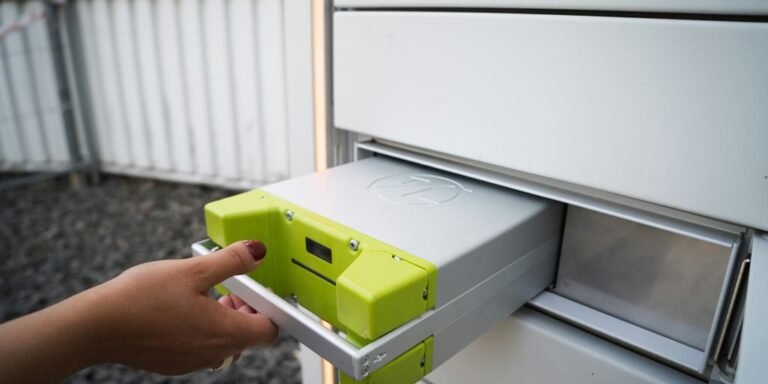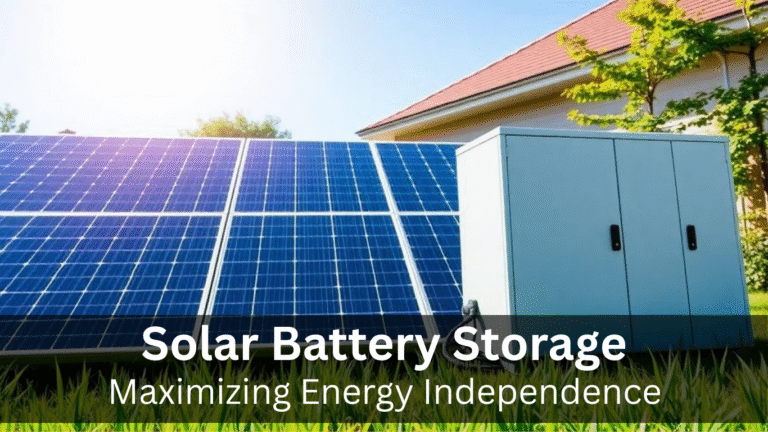Maryland proposes bill to allow diesel generators at large data center campuses
Maryland is making big moves to attract more data centers. The state recently put forward a new piece of legislation that would make it easier for these big campuses to use diesel generators for backup power. This comes after some data center plans hit a wall because of old rules about these generators. Basically, Governor Moore and others want to smooth things out so Maryland can become a major player in the data center world, especially with Northern Virginia getting so crowded.
Key Takeaways
- Maryland’s Governor Moore is pushing new legislation to help data centers, called the Critical Infrastructure Streamlining Act.
- This new legislation aims to fix past problems with permits for diesel generators, which caused some data center projects to fall through.
- The state wants to take advantage of its good location near Northern Virginia, a major data center area, to bring more business to Maryland.
- The proposed legislation changes how backup generators are seen, especially those over 2 MW, so they don’t need a special permit like power plants.
- This move has support from the industry and builds on Maryland’s history of giving tax breaks to data centers, showing a clear effort to attract more tech business.
Maryland’s Proactive Legislation for Data Centers

Governor Moore’s Initiative for Industry Growth
Governor Moore is actively working to attract data centers to Maryland. His administration has proposed the Critical Infrastructure Streamlining Act to address concerns within the data center industry, particularly regarding backup power solutions. This initiative aims to streamline the regulatory process and make Maryland a more attractive location for data center development. The governor wants to attract these facilities across the state.
The Critical Infrastructure Streamlining Act
The Critical Infrastructure Streamlining Act (Senate Bill 474) seeks to reclassify backup generators used in data centers. This reclassification is intended to remove these generators from the stringent permitting requirements currently in place. The goal is to speed up the approval process for data center projects, addressing a key obstacle that has deterred some companies from investing in Maryland. The act aims to redefine a “generating station” to exclude backup generators of any size, so data centers and similar businesses would not have to go through the lengthy delays of the full CPCN process.
Redefining Backup Generator Legislation
The proposed legislation focuses on distinguishing between backup generators and traditional power plants. It aims to clarify that backup generators, which are not connected to the grid and are only used during power outages, should not be subject to the same regulations as facilities that generate power for public consumption. This distinction is crucial for data centers, which rely on backup generators to maintain continuous operations. The proposed legislation makes sense because the emergency generators are not connected to the grid and can’t be used for self-directed prime power generation.
The bill would redefine a “generating station” to exclude backup generators of any size, so data centers and similar businesses would not have to go through the lengthy delays of the full CPCN process.
Here’s a summary of the proposed changes:
- Exempt backup generators from being classified as "generating stations."
- Streamline the permitting process for data centers.
- Attract more data center investment to Maryland.
Addressing Past Permitting Challenges

Aligned Data Centers’ Withdrawal from Quantum Loophole
Remember when Aligned Data Centers pulled out of the Quantum Loophole project? It was a big deal, and a lot of it came down to permitting issues. The PSC flexibility wasn’t quite there, and it ended up costing the state a major project. It highlighted how important it is to have clear and efficient processes for these kinds of developments.
Impact of Public Service Commission Decisions
The Public Service Commission (PSC) plays a huge role in these decisions. The original regulations weren’t really designed for data centers; they were more geared toward traditional power plants and transmission lines. This mismatch created a lot of confusion and delays. It’s not that the PSC was trying to be difficult, but the existing rules just didn’t fit the unique needs of data centers. This led to some pretty significant hurdles for companies trying to set up shop in Maryland.
Ensuring Future Data Center Development
To make sure this doesn’t happen again, Maryland is trying to streamline the process. Here are a few things they’re focusing on:
- Updating regulations to specifically address data centers.
- Providing clearer guidelines for backup power generation.
- Creating a more predictable and efficient permitting process.
The goal is to make Maryland a more attractive place for data centers to invest. By addressing these past challenges, the state hopes to create a more business-friendly environment and attract more of these high-tech facilities.
Strategic Location and Market Demand
Proximity to Northern Virginia’s Data Center Hub
Maryland’s strategic location is a huge advantage, especially its closeness to Northern Virginia, which is basically the data center capital. Being so close means Maryland can easily tap into the overflow from that market. Think of it like this: Northern Virginia is bursting at the seams, and Maryland is right there, ready to catch some of that action. It’s all about location, location, location.
Quantum Loophole Campus Potential
The Quantum Loophole campus is a big deal. It’s got the potential to be a major player in the data center world. The idea is that it can attract companies looking for a place to build or expand their data center operations. It’s not just about having land; it’s about having the right infrastructure and the right environment to support these kinds of facilities. The campus is designed to be a hub for innovation and growth, and it could really put Maryland on the map as a data center destination. It’s a long-term play, but the potential is definitely there. The European diesel genset market is also seeing similar growth.
Alleviating Space and Power Constraints
One of the biggest challenges in the data center industry is finding enough space and power. Northern Virginia, for example, is facing serious constraints in both areas. Maryland can help alleviate these issues by offering alternative locations with available land and power resources. This is a major selling point for the state. It’s not just about being close to Northern Virginia; it’s about offering something that Northern Virginia can’t: room to grow and the power to support that growth.
Maryland’s ability to provide solutions to the space and power constraints faced by other regions positions it as a key player in the data center market. This advantage, combined with strategic planning and legislative support, sets the stage for significant industry growth within the state.
Here’s a quick look at the potential benefits:
- More available land compared to Northern Virginia.
- Access to diverse power sources.
- Reduced costs for land and development.
Understanding Current Legislation and Proposed Changes
Existing 2 MW Generator Regulations
Currently, Maryland has rules about how big backup generators can be without needing extra approvals. The existing rules generally cap the size of these generators at 2 MW. This limit has sometimes made it hard for data centers, which often need more power for backup systems. The new bill aims to change this, making it easier for data centers to use bigger generators.
Exemption from Certificate of Public Convenience and Necessity
One of the biggest changes proposed is an exemption from needing a Certificate of Public Convenience and Necessity. This certificate is usually required before building or changing certain types of infrastructure. The proposed bill would remove this requirement for data center generators, streamlining the approval process. This change is a direct response to the glacially slow government regulation changes, aiming to speed things up.
Distinguishing Backup from Prime Power Generation
It’s important to understand the difference between backup and prime power generation. Backup generators are only used when the main power source fails. Prime power generators, on the other hand, are used as the main source of power. The proposed legislation specifically addresses backup generators, ensuring they are only used during emergencies and not as a primary power source. This distinction is key to choosing the right diesel generator and its intended use.
The goal is to clarify the rules around backup generators so that data centers can operate reliably without unnecessary delays. This change is not about allowing data centers to become independent power producers, but rather about ensuring they have the necessary backup power to maintain operations during outages.
Here’s a simple breakdown:
- Current Limit: 2 MW
- Proposed Change: Exemption from Certificate of Public Convenience and Necessity for backup generators.
- Focus: Backup generators only, not prime power.
- Impact: Faster approvals, more reliable data center operations.
Industry Support and Economic Incentives
Quantum Loophole’s Welcome of the Legislation
Quantum Loophole, a major player in the data center space, is pretty happy about this proposed legislation. It signals a more welcoming environment for data center development in Maryland. This kind of support from industry leaders is a good sign, suggesting the changes are practical and address real concerns. It’s not just about getting more generators approved; it’s about creating a business-friendly atmosphere.
Broader Benefits for Various Industries
It’s easy to think this is just about data centers, but the impact could be much wider. Think about hospitals, manufacturing plants, and other businesses that rely on backup power. If the rules around backup generators become clearer and more flexible, it could make it easier for all sorts of industries to operate and expand in Maryland. This could lead to more jobs and a stronger economy overall. The state government has to balance both economic and environmental issues.
Maryland’s History of Data Center Tax Breaks
Maryland has a history of offering tax incentives to attract data centers. These incentives, combined with the new generator legislation, could make the state a more attractive location for these facilities. Data centers bring jobs and investment, and the state is clearly trying to position itself as a competitive player in the data center market. The potential $40 million in annual tax revenue and thousands of potential jobs is a big deal for the state. The data center industry in Maryland can unleash more economic potential.
Maryland’s commitment to data centers is clear. By addressing the generator issue and offering tax breaks, the state is sending a message that it’s open for business and ready to support the growth of this important industry. This proactive approach could pay off big time in the years to come.
Here’s a quick look at some potential economic impacts:
- Increased job creation
- Higher tax revenues
- More investment in infrastructure
- Boost to related industries
It’s all about creating a positive cycle of growth and development.
Legislative Process and Future Outlook
State Senator William Folden’s Sponsorship
State Senator William Folden is the driving force behind this bill. It’s not just some random piece of legislation for him; he’s actively championing it. His involvement signals a serious commitment to making Maryland a more attractive place for data centers. It’s good to see someone taking the lead on this, especially given the potential economic benefits.
Upcoming Hearing for the Legislation
There’s an upcoming hearing scheduled for this legislation, and it’s a pretty big deal. This is where the bill will be discussed, debated, and potentially amended. It’s a chance for stakeholders to voice their opinions and concerns. Keep an eye on the news for updates after the hearing; it’ll give a good indication of where things are headed. The hearing will be a key moment to see if the Critical Infrastructure Streamlining Act has enough support to move forward.
Ensuring a Bright Future for Data Centers
This bill is all about setting the stage for a bright future for data centers in Maryland. It’s about creating a regulatory environment that’s both predictable and supportive. If it passes, it could really boost the state’s economy and attract even more investment. It’s a long-term play, but the potential payoff is huge.
The goal is to make Maryland a hub for data centers, plain and simple. This means attracting companies, creating jobs, and generating revenue. It’s a win-win for everyone involved, as long as the regulations are clear and fair.
Technical and Regulatory Clarifications
Generators Not Connected to the Grid
One important aspect of the proposed bill is that it specifically addresses generators that are not connected to the electrical grid. This distinction is key because it clarifies that these generators are intended solely for backup power during outages, not for supplying power to the grid for general use. This separation has implications for how these systems are regulated.
Exclusion from PSC Oversight
Because the generators covered by this bill are not intended to feed power into the grid, they would be excluded from the oversight of the Public Service Commission (PSC). This is a significant departure from the existing regulations, which often require a Certificate of Public Convenience and Necessity for power generation facilities. The Critical Infrastructure Streamlining Act explicitly excludes backup power generation facilities from the PSC’s authority, simplifying the approval process for data centers.
Continued Adherence to Air Permits
Even with the changes proposed in the bill, data centers will still need to adhere to all existing air quality permits. This means that while the process for approving the use of diesel generators may be streamlined, data centers will still be required to meet environmental standards for emissions. These standards are designed to protect air quality and minimize the impact of generator operation on the surrounding community. The public informational meeting regarding an emergency generator is an example of the type of oversight that will continue.
The proposed legislation aims to strike a balance between supporting the growth of the data center industry in Maryland and ensuring that environmental regulations are followed. By clarifying the regulatory framework for backup generators, the bill seeks to provide data centers with a more predictable and efficient path to obtaining the necessary permits, while still maintaining safeguards for air quality and public health.
Here’s a quick rundown of the key regulatory aspects:
- Generators must be solely for backup power.
- No connection to the electrical grid is allowed.
- Existing air quality permits still apply.
- PSC oversight is excluded.
Conclusion
So, what does all this mean for Maryland? Well, it looks like the state is really trying to roll out the welcome mat for data centers. The governor’s pushing this bill, and it could make things a lot easier for these big tech companies to set up shop. It’s a pretty big deal, especially since a company already backed out because of generator issues. If this bill passes, we might see a lot more data centers popping up, bringing jobs and maybe some other changes to the area. It’s definitely something to keep an eye on, as it could change the landscape quite a bit.
Frequently Asked Questions
What is the new bill in Maryland about?
Maryland’s Governor Wes Moore introduced a new law called the Critical Infrastructure Streamlining Act. This law aims to change how backup generators are seen under state rules, making it easier for big data centers to use them.
Why is this bill being proposed now?
This new bill is important because a data center company, Aligned Data Centers, decided not to build a huge facility in Maryland. They couldn’t get the necessary permits for their diesel generators, which they needed to power their operations.
How does the new bill change existing rules for generators?
Currently, if a backup generator is larger than 2 megawatts, it’s considered a ‘generating station’ and needs a special permit. The new bill wants to change this rule so that backup generators of any size don’t need this special permit, speeding up the process for data centers.
How does Maryland’s location play a role in this bill?
The Quantum Loophole campus is very close to Northern Virginia, which is a major hub for data centers but is running out of space and power. Maryland hopes to attract these data centers by making it easier for them to operate there.
Who supports this new legislation?
Companies like Quantum Loophole are happy about the bill. They believe it will help not just data centers, but also other industries like hospitals, hotels, and factories that rely on backup power.
Will data centers still need to follow other rules if this bill passes?
Even if the bill passes, data centers will still need to follow air quality rules set by the State of Maryland. However, the state’s Public Service Commission (PSC) would no longer oversee the backup generators themselves.






